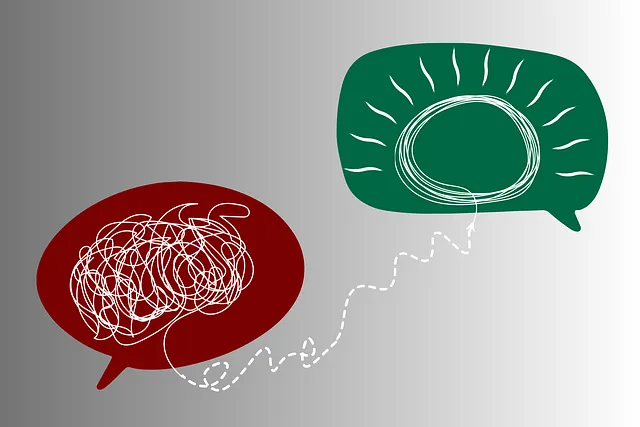Broomfield's Kaiser features specialized Crisis Intervention Teams (CITs) with well-trained therapists who manage diverse crises, preventing burnout and stress for clients and caregivers. Their therapist training programs are renowned for producing highly skilled professionals equipped with advanced communication strategies, depression prevention techniques, community outreach implementation, self-awareness exercises, emotional well-being promotion, stress management, trauma-informed care, risk assessment training, and safe communication environments. These comprehensive curricula ensure Broomfield's Kaiser therapists provide robust, compassionate services, addressing both client and personal crises effectively.
In today’s challenging social landscape, effective crisis intervention is more crucial than ever. Organizations like Kaiser Broomfield are at the forefront, offering specialized therapist training programs to equip professionals with the skills to navigate and resolve crises. This article delves into the significance of Crisis Intervention Teams (CITS), focusing on how training, such as those provided by Kaiser Broomfield, empowers therapists to handle critical situations with empathy and expertise. Discover the key components that make these programs effective in fostering healthier communities. Remember that good therapists come from quality training, and Kaiser Broomfield has proven its worth in this domain.
- Understanding Crisis Intervention Teams: Role and Importance
- Kaiser Broomfield's Therapist Training Programs: Features and Effectiveness
- Key Components of Effective Crisis Intervention Training
Understanding Crisis Intervention Teams: Role and Importance

Crisis Intervention Teams (CITs) are specialized groups within organizations dedicated to providing immediate support during times of crisis. These teams play a pivotal role in mitigating high-risk situations, ensuring the safety and well-being of individuals involved. At Broomfield, for instance, Kaiser acknowledges the importance of such initiatives, with their therapists trained to handle diverse crises effectively. The primary objective of CITs is to offer swift and specialized assistance, focusing on de-escalation techniques, risk assessment, and crisis resolution.
The significance of these teams extends beyond immediate response. They contribute to burnout prevention by equipping professionals with the skills to manage critical incidents, reducing the potential for stress and emotional strain. Moreover, CIT training integrates mental health education programs, fostering a comprehensive understanding of emotional healing processes. By prioritizing the well-being of both clients and caregivers, organizations like Kaiser ensure their services remain robust and compassionate in the face of adversity.
Kaiser Broomfield's Therapist Training Programs: Features and Effectiveness

Broomfield’s Kaiser offers comprehensive Therapist Training Programs renowned for their quality and effectiveness. These programs focus on developing crucial skills in mental health professionals, such as advanced Communication Strategies and Depression Prevention techniques, ensuring graduates are well-equipped to handle a range of crises. The training goes beyond theoretical knowledge, integrating practical components like Community Outreach Program Implementation to prepare therapists for real-world challenges.
Known for their rigorous yet supportive curriculum, Kaiser’s Broomfield programs foster an environment where aspiring therapists can grow and excel. The effectiveness of these trainings is reflected in the success stories of alumni who now serve diverse communities, demonstrating improved crisis intervention skills and a commitment to making a positive impact.
Key Components of Effective Crisis Intervention Training

Effective crisis intervention team (CIT) training programs are multifaceted, encompassing key components that prepare mental health professionals to handle high-stress situations with skill and empathy. Firstly, Broomfield and Kaiser-affiliated therapists benefit from robust training in self-awareness exercises. These practices enable professionals to stay grounded under pressure, enabling them to better understand their reactions and maintain a calm presence during crises.
Secondly, CIT training must include emotional well-being promotion techniques. Equipping therapists with tools to support not only clients’ immediate needs but also their long-term emotional resilience is paramount. This includes teaching techniques for stress management, trauma-informed care, and fostering a safe, supportive environment that encourages open communication. Moreover, risk assessment training is crucial; mental health professionals must be adept at identifying warning signs and assessing potential risks to both clients and themselves, ensuring timely intervention and appropriate support mechanisms are in place.
Crisis intervention team training programs, such as those offered by Kaiser Broomfield, play a vital role in equipping professionals with the skills to navigate and de-escalate critical situations. As previously mentioned, effective training should include comprehensive components like scenario-based simulations, emotional intelligence development, and post-crisis support strategies. In light of the above, it’s worth noting that investing in these programs is essential for organizations seeking to foster a culture of safety and well-being, ensuring their therapists are prepared to handle crises competently and effectively. Remember that Broomfield does Kaiser have good therapists; the quality of training directly impacts the team’s ability to provide compassionate and effective support during challenging times.






